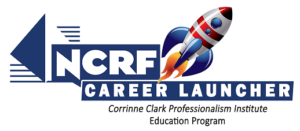
“I have been given lots of great advice,” says Jonea Cassin, a student at Cuyahoga Community College in Parma, Ohio. “Never give up, and don’t get down on yourself because tomorrow is a new day with more time to practice. Also, no matter how frustrated you get, don’t throw your machine at the wall; you will regret it later.”
Up-to-Speed finds out how Cassin handles working full time and working toward her dream job.
UTS | How did you first get the idea of being a court reporter?
JC | I have my bachelor’s degree in paralegal studies, so I have always enjoyed the legal field. I have worked at my county’s courthouse for almost 10 years now. In the summer of 2017, I was working as the jury manager. During one of the jury trials, the judge decided to take a break from voir dire, and the judge’s court reporter turned to me and said that she thought I would be really good at court reporting. I let that sink into my head for a little bit and tried to do as much research on it that I could. A few days later when the trial was over, we discussed it a little more.
UTS | What kinds of challenges have you faced during your court reporting program, and how have you overcome them?
JC | That there is just not enough time in the day or the week. Working a full-time job, going to school, and having a life is a big challenge. I try to do some of my homework on my lunch break, and I also schedule practice time throughout my week to ensure that my homework gets done but that I also don’t get drained.
UTS | Do you have a mentor? What impact has she had on you?
JC | I do have a mentor. She is the court reporter that initially told me that I would be great at court reporting. She just retired, but she had worked at the courthouse for 41 years. She has been the best thing that has ever happened to me. She shares every excitement with me and encourages me not get down on myself if I am frustrated. It’s nice to even have a conversation with her just because she has been through it and understands. I think the impact that she has had on me is to keep pushing through school no matter what issues I face, because I know that she is here to support me.
UTS | If you were to go to a high school career fair to recruit students, what would you say to them about a career in court reporting and captioning?
JC | I would tell them that it is not for everyone but to try either the NCRA A to Z® Intro to Steno Machine Shorthand Program or the Basic Training course to see if it would be something that would interest them. It is a degree that takes a lot of time to commit to but in the end it has so many rewards. There are so many different things that you can with the degree. It is a degree that what you get out is determined by the effort you put in.
UTS | Where do you see yourself in five years?
JC | I currently operate the digital recording system for a common pleas judge. I am hoping to graduate and be his stenographer court reporter.
UTS | What do you do when you aren’t working?
JC | Homework. But if I have spare time from homework, I enjoy spending time with my family or doing things outdoors like kayaking, walking in the park, sitting outside at a local winery with friends, or even sitting by a bon fire at night.












